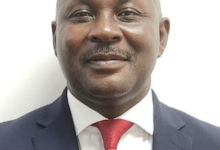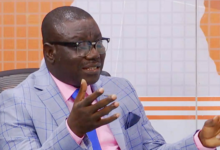
President Nana Addo Dankwa Akufo-Addo and the Speaker of Parliament, Alban Kingsford Sumana Bagbin, are in disagreement over the position of the 1992 Constitution on the passage of Private Member’s legislation in the House.
This stems from the failure of the President to assent to three Private Member Bills which were passed by Parliament.
It would be recalled that a fortnight ago, the President in a letter to Mr Bagbin said he could not assent to the Criminal Offences Amendment Bill, 2023, the Criminal Offences 2 Bill, 2023 and the Armed Forces Amendment Bill, 2023 because of constitutional imperatives without providing further clarification.
Providing further elucidation in a letter addressed to the Speaker and read on the floor of the House in Accra yesterday, President Akufo-Addo said in as much as the contents of the bills had his support, they should emanate from the government and not engineered by a private lawmaker.
The President’s argument was premised on Article 108(a) of the 1992 Constitution which provides that Parliament shall not proceed on a bill or effect an amendment to a bill that, in the opinion of the person presiding imposes a tax or impose a charge on the consolidated and other funds of the state.
In view of the above constitutional provision, President Akufo-Addo held that such bills should have been accompanied by a detailed financial implications and its burden on the Consolidated Fund and that his outfit would in the coming days sponsor the bills for the consideration of the House.
But the Speaker said the President was wrong on his interpretation of the position of the law.
“I vehemently disagree with the President on the position he has taken. The President got it tragically wrong. I will submit in a form of statement under Article 53 my position on this matter to allow members of the House to comment during the course of the week.
“The President has not been properly advised and informed of the process this bills have gone through,” the Speaker stated.
To the Speaker, the President’s message and its content were “irregular, wrongful and unconstitutional”.
In the view of the Speaker, the constitution clearly provides on what the President should do when he disagrees with the legislature.
“It is not for the President to decide on the constitutionality or otherwise of the bill that has been presented and considered by Parliament.
“The power to Parliament cannot be taken away by any executive authority.
“We cannot backslide by somebody’s understanding of what the constitution says without any basis of fact,” the Speaker stated.
The Speaker’s utterances were not taken kindly by the Majority Leader and MP for Suame, Osei Kyei-Mensah-Bonsu, who wanted to make an intervention but was not “recognised” by the Speaker.
Addressing journalists at the foyer of the chamber, Mr Kyei-Mensah-Bonsu, posited that though the Speaker was as at liberty to disagree with the President, same should have been done in “a decorous and a more civil manner.”


He recalled that the same spectacle had played out before when the Speaker was the Chairman of the Constitutional, Legal and Parliamentary Affairs Committee and asked “so what has changed.”
BY JULIUS YAO PETETSI






